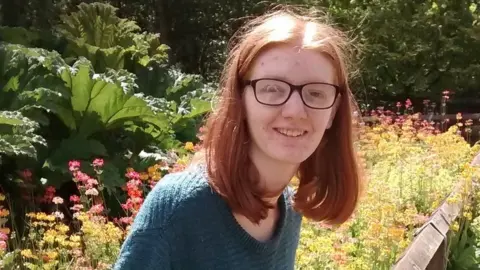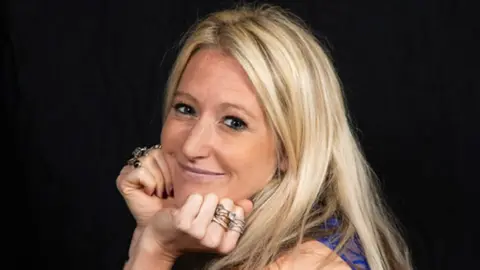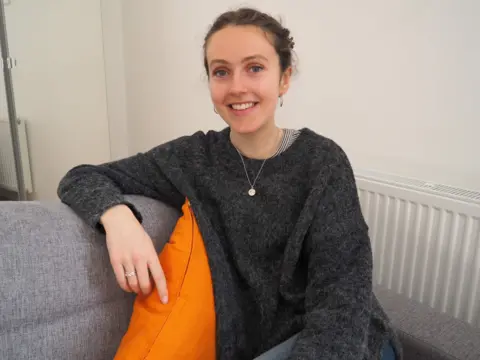'Eating disorders don't take a break for Christmas'
 Lucy Tawn
Lucy Tawn"I'm trying to think of Christmas beyond the food but it's difficult," Lucy Tawn tells us.
The 21-year-old from Yorkshire has had anorexia for seven years and she's speaking to Radio 1 Newsbeat from hospital.
"At the moment I'm preparing to spend Christmas on a medical ward, and it feels quite scary with Covid around," she says.
Like many others, Lucy has found the impact of the pandemic has made things more difficult.
It's estimated that about 1.25 million people in the UK have an eating disorder, according to the charity Beat.
More than 10,000 people contacted their helpline last month, which is three times more than last November.
"I know there's more to Christmas than just food, but it's hard because eating disorders don't take a holiday," Lucy says.
Hope Virgo has struggled with anorexia in the past and runs a campaign called Ditch The Scales, to help people access support.
She told Newsbeat hundreds of people have contacted her recently, worried about the festive season.
 VICKI SHARP
VICKI SHARP"During Covid we have seen an increase in people struggling, and also people in recovery going back to those unhealthy coping mechanisms," she says.
"2020 has been an uncertain time for so many. Combined with the challenge of Christmas, which is so focused around food, it has fuelled this perfect storm."
James Downs has struggled with anorexia and bulimia, and now works in mental health. He's worried the new restrictions will make things extra tough this Christmas.
 James Downs
James Downs "People might not be able to meet up with others in the way they would like to. We know eating disorders are really isolating and they thrive on secrecy and isolation.
"I encourage people to break the silence - even if it is over Zoom, or through a text or phone call," he says.
Lara Ferguson, who is 21, says she used to feel overwhelmed during the festive period.
"There's so many expectations to be happy and to be joining in. You want to get involved but there is a barrier there and you can't.
"For me it led to guilt and shame, and I felt like I was ruining everyone else's Christmas… I've recovered from anorexia now but I mourn for those Christmases I lost.
 Lara Ferguson
Lara Ferguson "I found talking about it and the things I was worried about really made a difference. I wrote letters to family members to tell them what would and wouldn't help me."
Hope has a number of tips for anyone struggling.
"On Christmas Day, when sitting down for dinner it can feel really difficult. Keeping in mind recovery goals can really help, even having a list written down of all the things you want to achieve.
"Also, planning for the day with family and friends so they can understand how to help. Looking at what activities could be involved as well, because not everything has to be focused on food."
Caroline Price, from Beat, says support is on hand if people need it.
"We would like to reassure anyone affected that we are here to support them, 365 days a year.
"We would encourage anyone in need of extra help over the festive season to get in touch."
For Lucy, even with the prospect of Christmas in hospital, she's determined to be positive.
"There is more to it than food, and you can still enjoy it with an eating disorder.
"I do know that and it's what I'm keen to keep in mind this year."
BBC Action Line also details of organisations that can provide advice, information and support for people affected by eating disorders.
